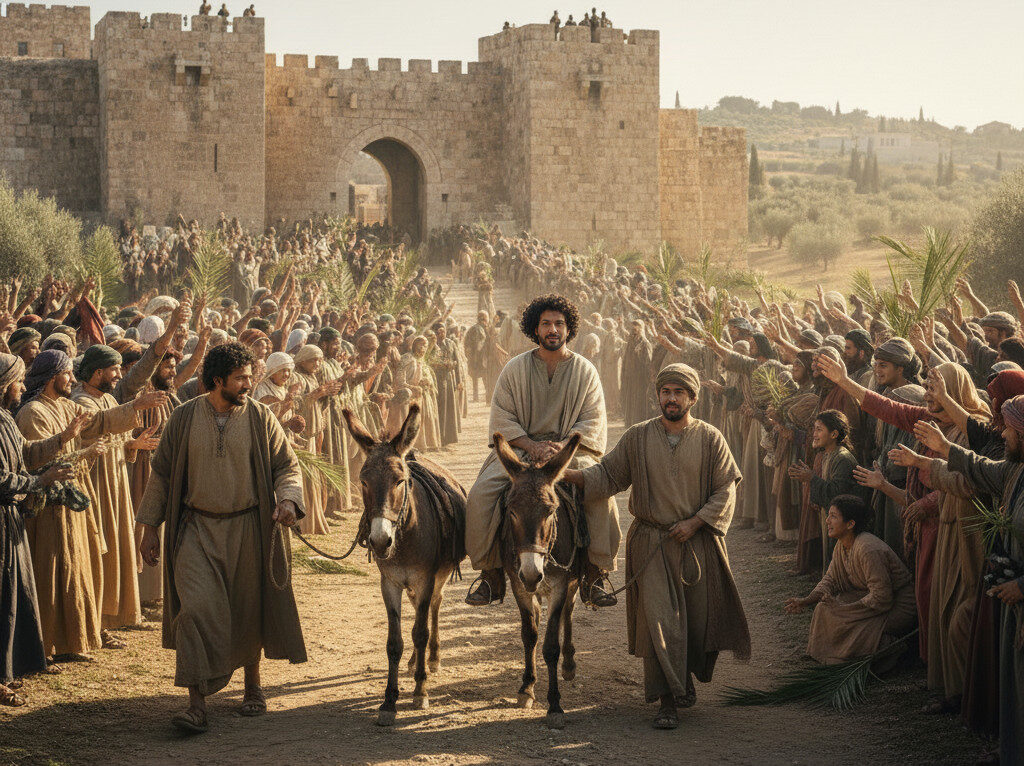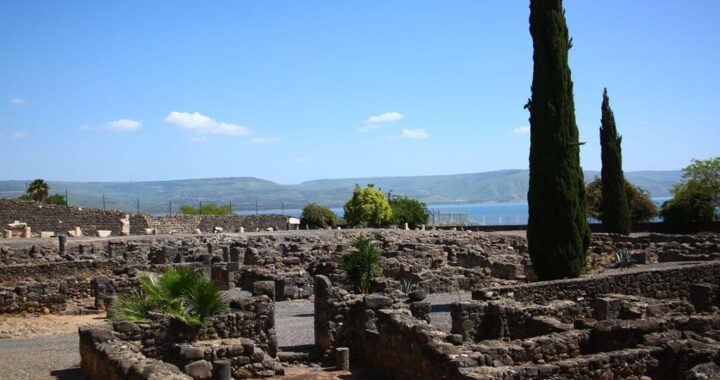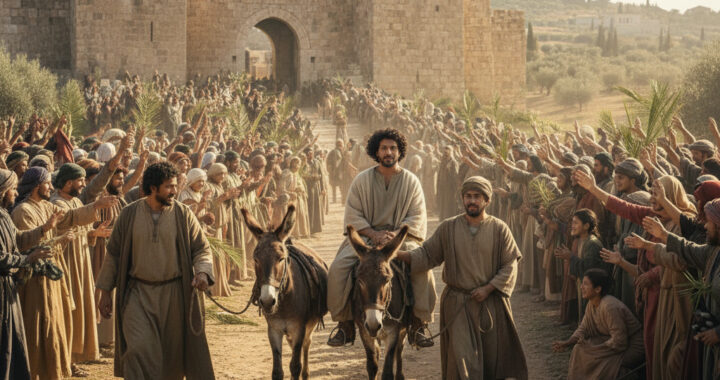Ezekiel 37:15-28 and Elements of God’s Future Promises to Israel
By Dr. Keith Kobelia / January 30, 2026
The Prophet Ezekiel was called to an unusual but important ministry to the captives of Judah in Babylon. Despite his unusual methods (e.g., symbolic acts) and extraordinary visions (e.g., Ezek...
Read More
Why the Promises to Israel Matter Today
By Dr. Daniel Brown / November 15, 2025
Fulfilled Messianic Prophecies from the Book of Zechariah
By Dr. Keith Kobelia / September 15, 2025
Among the most intriguing prophetic sections of the Bible are the prophecies of Zechariah which are contained in the book that bears his name. Zechariah is teeming with Messianic prophecies,...
Read More
The Virgin in Isaiah 7:14
By Dr. Timothy A. Little / July 1, 2025
INTRODUCTION According to the Gospel of Matthew, the virgin Mary was found to be with child of the Holy Spirit. Jesus the Messiah was miraculously conceived, and, several months later,...
Read More
1 Reply
{"slides_column":1,"slides_scroll":1,"dots":"true","arrows":"true","autoplay":"true","autoplay_interval":"5000","speed":"1200","lazyload":""}
Ezekiel 37:15-28 and Elements of God’s Future Promises to Israel
Posted on by Dr. Keith Kobelia
The Prophet Ezekiel was called to an unusual but important ministry to the captives of Judah in Babylon. Despite his unusual methods (e.g., symbolic acts) and extraordinary visions (e.g., Ezek 40–48), his overall message is clear and provides insight into God’s plan for Israel.
The Context of Ezekiel’s Prophecy of the Two Sticks
Ezekiel was taken captive in the second wave of the Babylonian Captivity when King Jehoiachin was taken captive in 597 BC (Ezek 1:2). Ezekiel then spent the remainder of his life in exile in Babylon, ministering to the captives that lived by the river Chebar (1:1, 3).
Why the Promises to Israel Matter Today
Posted on by Dr. Daniel Brown
Orthodoxy1 always precedes orthopraxy.2 Correct doctrine always precedes correct practice. No one can function with biblical practice and methodology without first having correct beliefs in place. Wrong theology will ultimately lead to errors in practice. Virtually every aberrant practice can be traced back to errors of theology. This truth is seen throughout Bible history and well as church history. This principle of ministry serves as an undeniable truth for every aspect of both doctrine and practice. Theology is about connections within doctrines and these connections inevitably end up in the practice of ministry.
Fulfilled Messianic Prophecies from the Book of Zechariah
Posted on by Dr. Keith Kobelia
Among the most intriguing prophetic sections of the Bible are the prophecies of Zechariah which are contained in the book that bears his name. Zechariah is teeming with Messianic prophecies, recording some of the most detailed Messianic predictions.
Some of Zechariah’s prophecies await future fulfillment (e.g., Zech 14:1-4). However, many of Zechariah’s Messianic prophecies relate to the first advent of Christ and are specifically identified as fulfilled by the Gospel authors in the events surrounding Christ’s Passion.1
Our modest goal of this study is to survey Zechariah’s fulfilled, first-advent Messianic prophecies and to offer some principles that we can learn from these passages.
The Virgin in Isaiah 7:14
Posted on by Dr. Timothy A. Little
INTRODUCTION
According to the Gospel of Matthew, the virgin Mary was found to be with child of the Holy Spirit. Jesus the Messiah was miraculously conceived, and, several months later, God was with us. The birth of the Messiah took place in this way, according to Matthew 1:23, in fulfillment of a prophecy—“Look! The virgin will be pregnant and give birth to a son. They will call his name ‘Immanuel’ which is translated, ‘God with Us.’”
From Matthew’s account, the virgin birth of Jesus the Messiah is miraculous but simple, and straightforward.
Joseph’s Prophetic Dreams and Their Fulfillment
Posted on by Dr. Ken Rathbun
Genesis 37-50 records the incredible account of Joseph, his dysfunctional family, and God’s faithfulness through it all. Joseph’s prophetic dreams during his youth sustained him in his making wise choices throughout his life. Joseph had additional opportunities in the narrative to interpret dreams for the baker, the cupbearer, and for the great Pharaoh. But the ones we will focus on concern the dreams of his eventual exaltation above his brothers.
This prophecy of exaltation has several unique features. First, in a narrow sense, it was focused on just one person—Joseph himself.
The Fulfillment of Daniel’s “70 Weeks” Prophecy
Posted on by Charlie Carter
One unique and interesting facet of biblical literature is the existence of predictive prophecy. I am always encouraged by the cohesiveness of God’s word when I read in Scripture of a prophecy coming to fruition. One such prophecy is the “coming and cutting off of the Messiah” predicted in Dan 9, referring to the arrival of the Messiah to his people and his subsequent crucifixion. The goal of this article is to briefly survey this prophecy from Dan 9, as well as observe its fulfillment in Luke 19.
Fulfilled Prophecy in Daniel 2 & 7
Posted on by Dr. Alan D. Cole
The hiker who ascends the lofty mountain and pauses to view the landscape below him can see in one panoramic view the entire forest and its relationship to the landscape around it. The interpreter of the book of Daniel is like this hiker. The student of this book receives a panoramic view of the forest of prophecy and how this forest relates to the theological landscape of God’s sovereign plan. In essence, when one studies the book of Daniel the individual is looking at the big prophetic picture.
Isaiah’s Amazing Prophecy of King Cyrus
Posted on by Dr. Ken Rathbun
Isa 44:28:
That saith of Cyrus, He is my shepherd, and shall perform all my pleasure: even saying to Jerusalem, Thou shalt be built; and to the temple, Thy foundation shall be laid.
Isa 45:1:
Thus saith the LORD to his anointed, to Cyrus, whose right hand I have holden, to subdue nations before him; and I will loose the loins of kings, to open before him the two leaved gates; and the gates shall not be shut;
Introduction:
Imagine in 1830 that someone in the then 54-year-old United States of America predicted by name in writing that a future president, who himself had formerly been a Hollywood actor, would be instrumental in ending the Cold War with the Soviet Union some 150 years later—in the 1980s!
The Prophecy of the Eternal King-Priest in Psalm 110
Posted on by Dr. Douglas Brown
The study of prophecy is always a favorite among believers. It is compelling and intriguing to see how prophets of God predict what will take place in the future. Fulfilled prophecy bolsters our faith and encourages us in the sovereignty of our great God. Only God has the omniscience to predict the future, and only God has the omnipotence to fulfill the prediction. Most prophecy in Scripture is directly tied to God’s plan and promises. This is the case with the prophecy found in Psalm 110.
Israel’s Future Enemy: The King of Babylon in Isaiah 14:4–21
Posted on by Dr. Timothy A. Little
The Bible has much to say about Israel—past, present, and future. This small plot of land, this scattered people throughout the world, are precious in the sight of the Lord (Zech 2:8). The prophets prophesied a bright future filled with abundance and blessing. On the eve of blessing, however, will be a time of great trial. The persecutor of Israel will prevail, conquering rulers, brutally ruling over his own people, and leading a worldwide persecution of the Jewish people.
Israel’s deliverer will not come from a political alliance, but from the true King of Kings who will usher in a time of eternal blessing.













